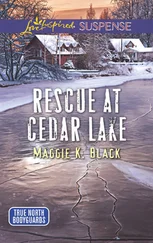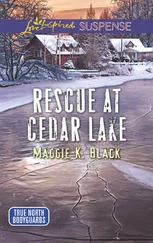Mama could remember that boy too. Her eyes were wet with tears. She brushed them away. ‘Of course we believe you,’ she said softly, ignoring Papa’s warning look. ‘Erich and I discussed it, once the soldiers were gone. Poor Imbi. And little Aime. She was too young.’ Her eyes filled again. Averting her face, she scurried to the cabinet and snatched up a mug. Filling it with water, she thrust it into his hand.
‘Thank you,’ Oskar said. He looked down at the mug, as if surprised by this sudden kindness. ‘I heard that you found them, Erich,’ he said. ‘I’m sorry. I wish I could have done something to spare you the shock.’
Papa shook his head. ‘It wasn’t me, Oskar,’ he said. ‘It was Kati.’
Oskar’s eyes widened. ‘Kati? Is that true?’
I dropped my gaze, afraid to look up and see the suffering this news might cause him. It was hard enough to face the memories I had to endure alone.
It had been spring when I found them, warmer than the one we were now experiencing. The wildflowers had bloomed early. Their spiciness mingled with the green scent of the rain that had left the river swollen and washed the sky a clear, cloudless blue. As I’d trudged the forest track that led between Oskar’s house and our own, I had brushed my hands along the edges of the fir trees. Their trunks soared above my head. They had set down their roots long ago, before the first settlers arrived, when Estonia was just a belt of wild forest filled with beasts. That Estonia was the one of Vikings and of the sagas of Iceland, her coasts a harbour to shelter in on the way to hunting waters, her islands stepping stones among the tides. It was the Estonia of men with the strength of ten plough horses and women who foretold their own destiny in dreams.
In the quiet of the forest, it was possible to imagine not much had changed at all.
The scent of fir needles lifted into the air, engulfing me as I walked the track I knew as intimately as the pattern of my grandmother’s lace. There was no chance I would linger idly, enjoying the breeze as it wafted through the trees. Oskar was waiting.
I could picture him pacing the small porch that wrapped around the farmhouse, eager to escape his chores, perhaps rubbing his toe against a loose board, eyes searching the track. His mother too would be awaiting my arrival. She’d always been fond of me, but lately she had been nervous. The presence of the Russians in Tartu disturbed everyone. She would grab my arm when I arrived and pull me indoors, her worried expression clearing until her round face was again as smooth as the dough resting in its bowl in the sun.
The dozen apples in my knapsack jostled and bumped against the small of my back. Mama had sent them for Oskar’s mother, a gift. In exchange, Imbi would send back the berries that she and her daughter Aime had picked. Thinking of Aime always brought a smile to my face. Although there were six years between us, I’d known her so long I sometimes felt she was my little sister, too. Once during the autumn holidays, Oskar had fallen ill with the measles and Aime had come to stay with us. She shared my bed and risen early to help me prepare breakfast and unpen the sheep. Although she found knitting difficult because of the long hours of sitting, it was a pleasure for her to tramp into the forest to harvest fruit. She delighted in showing me how to peel back the moss to reveal a clutch of fenberries hidden beneath. Imbi had taught her which berries were safe to eat and which must be left behind. Cloudberries, small orbs of shiny copper with a lingering honey flavour, were the most prized, for each plant only grew one stalk.
‘You should make a cloudberry shawl,’ Aime had once advised, her eyes sparkling as she dropped one of the precious globes into my hand and tucked the rest away in a soft sack for her mother to preserve.
Imbi was the queen of preserves. My mouth was already watering in anticipation of the sweet seeded strawberries she soaked in elderflower wine and served with thick slices of malty brown bread. She was my champion, always encouraging Oskar to invite me over, pressing jars of pickled blueberries into my hands. I had given her a knitted scarf for her last birthday, covered with vikkel , travelling stitch, the edges woven through with braided ribbon. I could tell Oskar was pleased, although he would have preferred for us to meet in the wild, overrun orchard beyond the house or in the paddock where they kept a few straggly cows. Imbi was not one to be argued with, though, and she liked my company so the farmhouse was where we spent most of our time, telling stories or helping Aime with her schoolwork while Imbi plied us with small battered cakes she had fried on the griddle and doused in her own special syrup; an assortment of berries steeped in the honey of wild forest bees. It was only in the midst of preserving that Imbi seemed to forget we were there, too busy preparing the sugar-water and instructing Aime on how to steep the fruit to notice the sound of our footsteps and the squeak of the door as Oskar and I slipped into the forest to be alone.
Once there, we could sink down among the mossy tussocks and watch the clouds race by, imagining how our lives might be, if nothing stood in our way. Although I couldn’t go to university, I wondered aloud if I could one day write a book, a collection of all the stories my grandmother had told me. I would still have to mind the sheep, of course, and help my parents with the farmwork, but in my spare time, I would run the knitting circle and perhaps even take trips outside of Estonia to see the world. Oskar would be a carpenter like his father had been before he grew ill and died, leaving Imbi to raise their children alone. Imbi had been forced to sell Oskar’s father’s tools at the flea market to make ends meet but that did not dampen Oskar’s plans to one day rebuild his mother’s cottage from the finest oak, with heart-shaped windows and a grand kitchen where Imbi could spend her days preserving without worrying about milking the cows and churning butter until her hands ached. There would be a shelf in the parlour so Aime’s dolls could watch over her as she studied and a room with large windows facing the garden which let in plenty of light so I could knit in comfort, without ever having to squint down to check that my stitches were even. It was a dream-house, a fantasy built from years of refinement and the countless hours Oskar and I had spent lying side by side, lost in our thoughts beneath the peace of the clouds.
In all our dreaming, we always spoke of our future as if we intended to live it together. Our pairing felt as natural as the shifting of seasons. My parents, I hoped, would not deny the match. Imbi, I felt sure, would be overjoyed.
A grin spread over my face. A twig snapped beneath my boots, pulling me out of my daydream.
And then I heard the cows.
The sound echoed across the forest, slipping in between the trees, filling the space and freezing me in my tracks. Their cries were loud, desperate.
I paused at the edge of the clearing that held Oskar’s farmhouse. From where I stood, it looked unchanged. The funny crooked windows, the small barn tacked on to the side, the fragrant herb beds nestled against the path that led up to the front door. But then that sound came again, loud and shrill, full of pain. The cows were trapped in their barn. There was nobody to milk them or set them free.
My feet seemed to move of their own accord, propelling me towards the house. My breath came in short, sharp bursts. When I reached the door, it swung open.
I bent my head, listening. I wanted to call out. I wanted to hear anything but those pitiful cries from the barn. But my voice was trapped in my throat.
I stepped inside. Sunlight slanted across the floor, illuminating the dust on the old floorboards, carving up the room into light and shade. I squinted, waiting for my eyes to adjust. That was when the smell reached my nostrils, the cloying scent of burnt sugar. Something had been left bubbling on the stove, now nothing more than a blackened sugar crust.
Читать дальше












